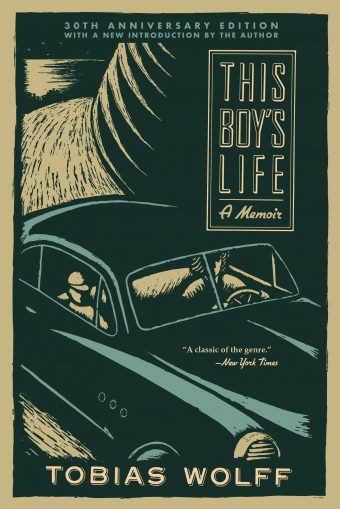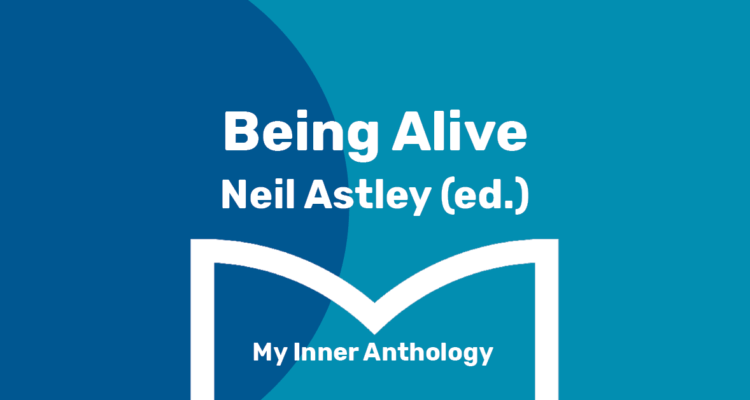My Inner Anthology: This Boy’s Life by Tobias Wolff
In this feature we're thinking about which bits of literature – whether that be in the form of poems, novels, essays, or plays – we would like to carry around inside ourselves for future reference. This week PIPES Reader Leader, Fiona Magee, recommends This Boy's Life by Tobias Wolff.
My choice for The Reader’s Inner Anthology series, is a memoir by writer Tobias Wolff - This Boy’s Life. It’s a funny thing, isn’t it, how only certain books stay with you and get sort of absorbed? Whereas others, no matter how great and how much you enjoyed them, just don’t. Thinking about why which ones stick has been interesting, and to be honest, a bit…uncomfortable.

So, to This Boy’s Life. Two epigraphs start the memoir:
“The first duty in life is to assume a pose. What the second is, no one has yet discovered.” Oscar Wilde.
“He who fears corruption fears life.” Saul Alinsky.
I notice how both quotes have the word ‘life’ at the centre – but it’s life slap-bang in the middle of pose and corruption. And that’s what the book is about really – how the hell you make a life for yourself that feels true, when there is so much (not least inside yourself) that’s distorting, false and even perhaps shameful? And so we learn about how Jack (the young Tobias Wolff) invents a life for himself that feels better and right – in the face of a fractured and at times very unhappy childhood.
Jack and his mother Rosemary are both aspiring-escapees from various heartbreaks, disappointments and failures: most of the book follows the period of his life spent with a brand-new abusive step-father, stuck in a town called Concrete (!) in rural, mountainous NW Washington State. Once settled there, Rosemary attempts to re-create a ‘real’ family. Jack writes, “But our failure was ordained, because the real family we set out to imitate does not exist in nature.”
Jack’s no different from the adults around him, he fakes it, a lot: borrowing somebody else’s sins at confession, writing bad cheques at the corner drugstore, writing his own letters of recommendations and transcripts to gain entry to an elite prep-school. When I read some of the book with some women in prison, they were shocked that the writer used his writing to admit to something bad rather than hide it. That still makes me think …
The book raises all sorts of questions about what’s real and what’s fantasy, who gets to decide that, and how you navigate between the two and stay somehow intact. When Jack forges the letters of recommendation from his teachers, even as he’s writing lies about himself, to him they seem completely true. He’s swapped himself in favour of someone who is everything he wants to be. It’s a survival strategy but is it lying (as we think of it), or testament to the power of imagination?
For anyone who’s read Great Expectations and David Copperfield - This Boy’s Life reminds me a bit of both of them: a modern, perhaps more brutal version of books that seem about a young person struggling to construct themselves, through imagination, as an unbroken, true (whatever that means) thing in the world.
This Boy’s Life has been in my inner anthology for years now, but maybe it feels pressing especially at the moment because I’ve got two teenagers here at home – and with lockdown I’ve had more opportunity lately to properly see that process of testing different versions of themselves out for the right fit, discarding or picking up various values and beliefs (and looks!) on a dizzying daily basis. We’re all probably doing the same ourselves to a lesser extent, right?
I’ll finish with something a group member once said about a Wolff short story – also highly recommended – which takes me right back to that (is it humorous? I’m not sure) first epigraph by Wilde.
The story is called Mortals – about an encounter between a (very much alive) man who sends in his own obituary to a local paper, and the slacker journalist who publishes it without fact checking, or at least making sure the person is actually dead. Talking in the group – which was in a residential centre for people living with psychosis – about why the man might do that, someone said this:
“If you haven’t achieved that much and you are not in a good state at the time of your death, what do you put in? I mean, people are not going to know about your personal workings are they? …the things that matter to you are always left unreported because they are never said, and an obituary is really about society’s view of you….it’s a stranger’s clinical view of your life, based on accomplishment. He wants to be acknowledged….he wants everyone to know who he was and then to correct it and say, actually this is what I’m really about…he wanted people to know who he really was…and not in the most shallowest sense, he just wanted someone to know who he really was.”
Share
Related Articles

My Inner Anthology: As You Like It by William Shakespeare
Reader Leader, Lizzie, recommends As You Like It by William Shakespeare. In May the theme for our Daily Readings is inspired by The…

My Inner Anthology: The Living Mountain by Nan Shepherd
Teaching and Learning Coordinator, Lisa Spurgin, recommends The Living Mountain by Nan Shepherd. In May the theme for our Daily Readings is…

My Inner Anthology: Being Alive – Neil Astley (ed.)
Reader Leader Lizzie, recommends and reads from 'Being Alive' - Neil Astley (ed.). In May the theme for our Daily…


